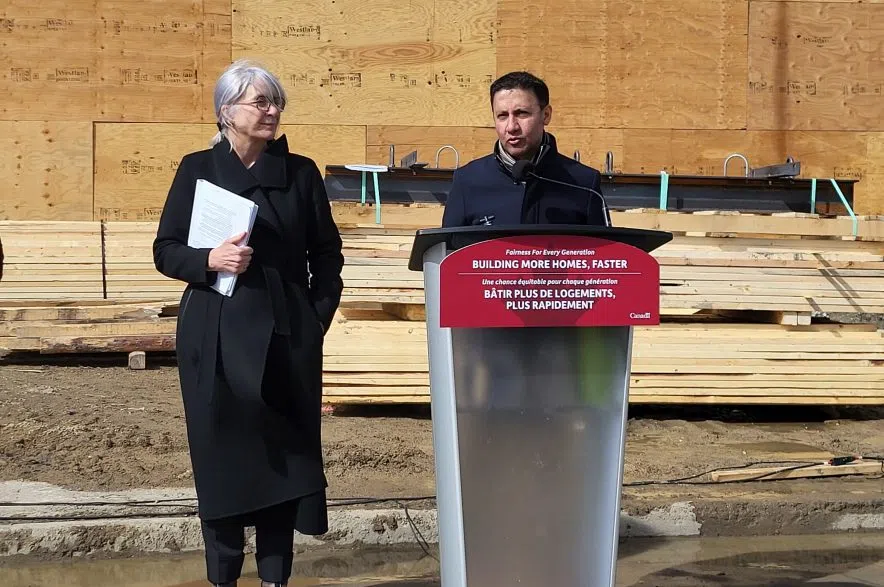What consequences could Saskatchewan face for breaking federal law over the carbon tax?
It’s still unclear, but Arif Virani, the federal justice minister, hinted Wednesday at what might lie ahead while talking to reporters in Regina.
In October, Premier Scott Moe announced the province would stop collecting carbon tax on home heating beginning in January if the federal government didn’t extend the exemption.
Then, in March, Dustin Duncan, minister responsible for the Crown Investments Corporation, announced that Saskatchewan would not remit the carbon tax on natural gas used for home heating to Ottawa.
“The act is pretty clear,” Duncan told The Evan Bray Show on March 1. “There’s the ability for provisions of fines and penalties and the ability in this case for criminal charges to be filed. I don’t think it’s going to come to that.”
Virani was asked about those comments on Wednesday.
“The expectation is that all provinces will obey the law and the matter is being looked at and assessed by entities like (the Canada Revenue Agency),” Virani said.
Virani did not give any specifics about what the consequences might be or when they would be experienced.
The federal minister said the price on pollution is critical to combatting climate change.
“We also know that the price on pollution has been litigated all the way up to the Supreme Court of Canada and Saskatchewan participated in that litigiation,” he said. “The Court in that case found that the price on pollution is an entirely legal measure and it is a lawful measure.
“I expect, as a federal attorney general and minister of justice, much the same way that my provincial counterparts would expect that the rule of law will be observed by all levels of government across the country.”
Housing
Arif was in Regina along with Indigenous Services Minister Patty Hajdu to announce the Government of Canada topping up the Apartment Construction Loan program by $15 billion – bringing the total funding of the program to $55 billion.
The federal ministers appeared at the construction site of an affordable housing unit in North Central.
On Tuesday, the federal government unveiled a $6-billion infrastructure fund that would require provinces and territories to adopt specific housing policies to get access to the money.
In an emailed response to 980 CJME, the Government of Saskatchewan said it was difficult for the province to respond to such news given a lack of detail or consultation with either the province or its municipalities.
“However, it appears as though the federal government is once again wading into provincial jurisdiction by taking once unrestricted infrastructure funding and tying it to housing requirements,” the province said.
The federal ministers offered a response to that statement.
“It’s disappointing to hear the lack of enthusiasm for another $6 billion towards housing but what I would say is that residents like the ones in this neighbourhood can’t afford to wait and they can’t afford to wait while provinces, territories, municipalities and the federal government bicker and that’s what’s so great about a model like this,” Hajdu said.
The province also questioned the $6-billion fund’s ability to help Saskatchewan specifically.
“While multi-dwelling housing may be a high priority in major urban centres like Toronto and Vancouver, it is not a high priority in most Saskatchewan communities, so we do not want to see this new fund come at the expense of infrastructure priorities in Saskatchewan due to our unique needs,” the province’s statement read.
Hajdu said the federal government wants to work with the province and meet the housing needs of Canadians regardless of what community they live in.
“The message that we’re hearing from Canadians is that they need more housing and they need more housing quickly,” she said.
“We’ve got conditions in certain parts of every province where there is lack of affordable housing … students that are having a hard time to find a place that’s legal, that’s safe, that’s clean (and) families that can’t find enough space for their children to play in and to grow in.
“That’s not unique to any one particular province so I would say that there’s a pathway forward with Saskatchewan.”











